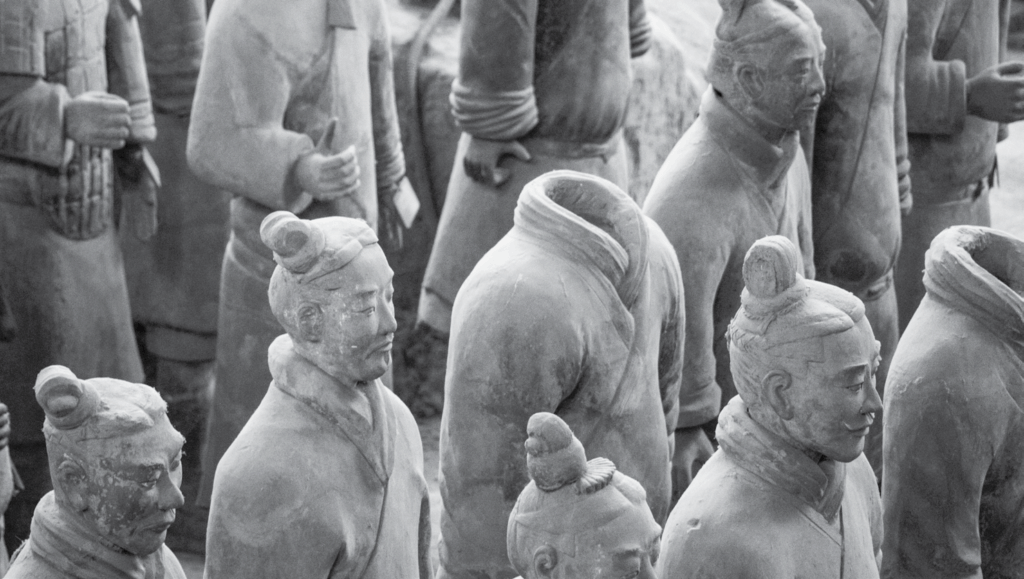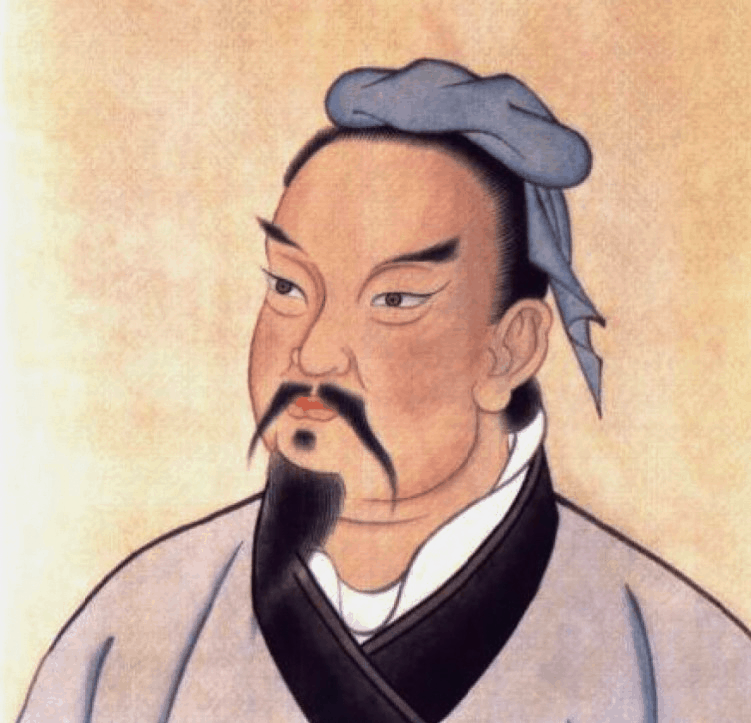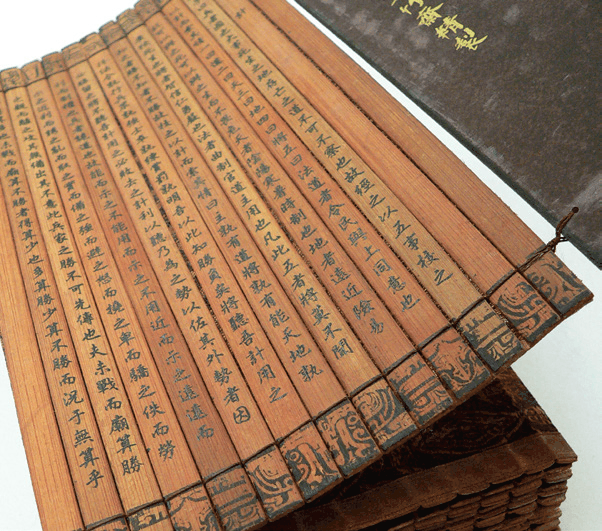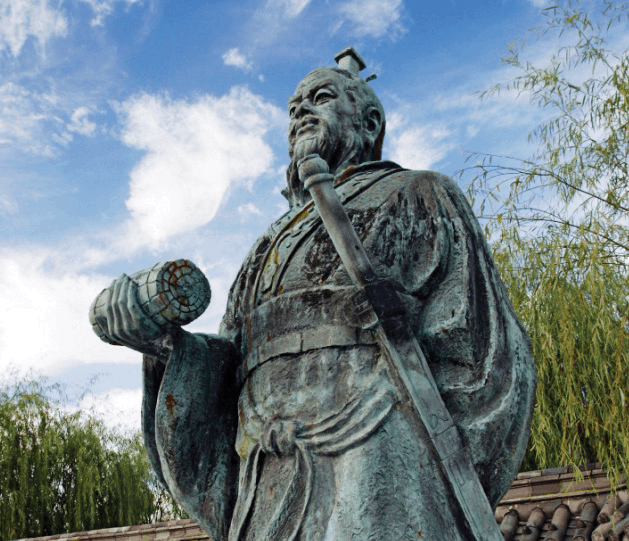
The Art of War is one of the most ancient handbooks of military strategy. The text, edited according to the peculiar political situation of China at the time (ca. 5th century BC), was elaborated into written form by a group of warfare generals as collective wisdom on the thought and philosophy of Sun Tzu (Master Sun), who lived between the sixth and fifth centuries BC.
This work has greatly influenced Eastern culture over the centuries. Today the volume has found popularity and application in various Western spheres: in management and marketing, in emergency and conflict resolution, in psychology and education, or simply in matters of daily life.

Sun Tzu had the fundamental perception that the world is a unitary whole, composed of a multitude of variable and connected components, each acting and influencing the others. If we can grasp the meaning of these elements and phenomena, we can synchronize our actions with them and find harmony. Then by distinguishing from within which structures are temporary and emerging, we could gain an advantage, albeit never a permanent one.
On the other hand, without considering the intercausal factors and manifestations, it would be difficult to scrutinize situations and events, or make the right decisions and tackle obstacles skillfully.
Winning by not fighting
However, Sun Tzu doesn’t just give guidelines to defeat enemies on the battlefield. For him, the best battle is the one won without fighting.
“A superior result consists in conquering the enemy intact and undamaged. Destroying the enemy is an inferior outcome.”
In other words, a hundred victories in a hundred battles are not the proof of supreme ability; instead, conquering the adversary without fighting is the ultimate goal. This means that whoever knows when to fight, and when to avoid it, will be the winner.
This perspective, therefore, offers an alternative measure of success: one in which victory goes beyond the individual’s specific desires but reaches a broader vision. A victory that respects the humanity of the opponent would be even nobler because it renders useless any further conflict.
While Sun Tzu gives the training to prepare for wars, his exhortation to avoid them is equally compelling.
Knowing yourself and the other
“If you know your abilities and those of the enemy, you will not have to fear the outcome of a hundred battles,” Sun Tzu says. “If you know yourself, but not your opponent, for each victory, you will suffer a defeat; but if you know neither your strength nor that of your rival, you will lose in every battle.”
In this logic: “If your troops are not ready and neither are your opponent’s, stop, do not attack, try to get better equipped. If you are ready, and the opponent is not, you can go to battle. But be aware that in any battle, there is never an absolute winner and an absolute loser. All suffer damage.
“If you are not ready and your opponent is ready, do not go to war; try to forge an alliance with him. If you are ready and your enemy is ready, do not make any war, make peace, so that both grow and get strengthened prosperously.”
These teachings were revolutionary even then because, before the time of Sun Tzu, the requirements for the conquest of power were physical strength, the authority of the ancestors, and moral qualities.
Power to bring harmony

Instead, the philosophy that inspires Sun Tzu is Taoism, and his goal is also to restore harmony and the order of things and creatures.
“With order, face the disorder; with calm, settle the impetuousness — this means having control of your heart.”
Today, many governors, administrators, executives, and leaders in various international spheres diligently study The Art of War. It is also recommended as a text for personnel and employee training courses, as well as for other purposes.
The main quality of Sun Tzu as a commanding general was, first of all, his pursuit of knowledge and wisdom. Loyalty, courage, justice, and humanity are qualities that should not be lacking.
So much has to be learned about the proficiency of leadership: interpreting one’s role not so much on strength, but on the ability to maintain a constant and favorable harmony between things and people.
A wise commander is always himself; he is always at ease in every situation, he is always serene and transmits his serenity to the people near to him. He evaluates the course of events without fear, and never considers the circumstances all in favor, or all hostile.
Rather, for each situation, he can identify the most appropriate answers to “conquer and maintain intact the enemy.” The answers will never be the same but must respond to the real situation in that place, at that moment, and with those people.
Leadership model shift
The development of new paradigms for today’s world vision is a matter of building relationships. The previous appeal to “steadiness, stability, uniformity” is now replaced by “change, transformation, innovation” and so on.
This text of Sun Tzu effectively expresses the importance of a flexible strategy, capable of adapting to the constantly changing environmental conditions, to the influence of human nature in conducting and organizing activities, as well as to the evaluation of ourselves and rivals.
If we want to translate The Art of War into modern understanding, it could be: leadership should be contemplative, collective, generative, and inclusive.
Contemplative, because without an overview and a profound reflection of one’s mission, it could never incarnate itself in real-life terms or remain in contact with the truth about itself.

Collective, because the work of a group formed by authentic relationships among its members, who plan together from the beginning, who share and sustain common objectives, economic means, available resources, timetables, execution, and verification methods will certainly go much further. Teamwork, co-responsibility, co-governance, community discernment, and even synodality in the ecclesial sphere are proving more successful than ever.
Generative, because it is necessary to identify and invent means for the company to operate according to its mission and be able to steer towards the destination. It is important to know how to take advantage of the potential opportunities during chaos and crises. Sometimes, it is necessary to find non-linear and out-of-the-box solutions. The solution could be “in the other room,” that is, confronting the standoff from another point of view.
“There are five [Chinese] musical notes, yet no one can claim to have heard all their combinations,” writes Sun Tzu.
Inclusive, because the mission must be shared by all who, with their aspirations, open minds, actions, and behaviors, turn out to be in harmony, involving and embracing in a profound, radical, and transversal way people of all stripes, ages, vocations, and abilities, permeating all sectors of human life.
In all this, perhaps it would be appropriate to constantly ask the question: Who is walking together with us? And at the same time: Who is missing? Who could and should be there but wasn’t invited or didn’t show up? Why?
After all, it is valid to say, “You can know how to win, without necessarily just winning.” This is the skill and refinement of an “Art of War” so that peace may reign!
Stella Chiu Yuen Ling
(Living City, USA)
The author is a Chinese journalist currently living in Italy.




